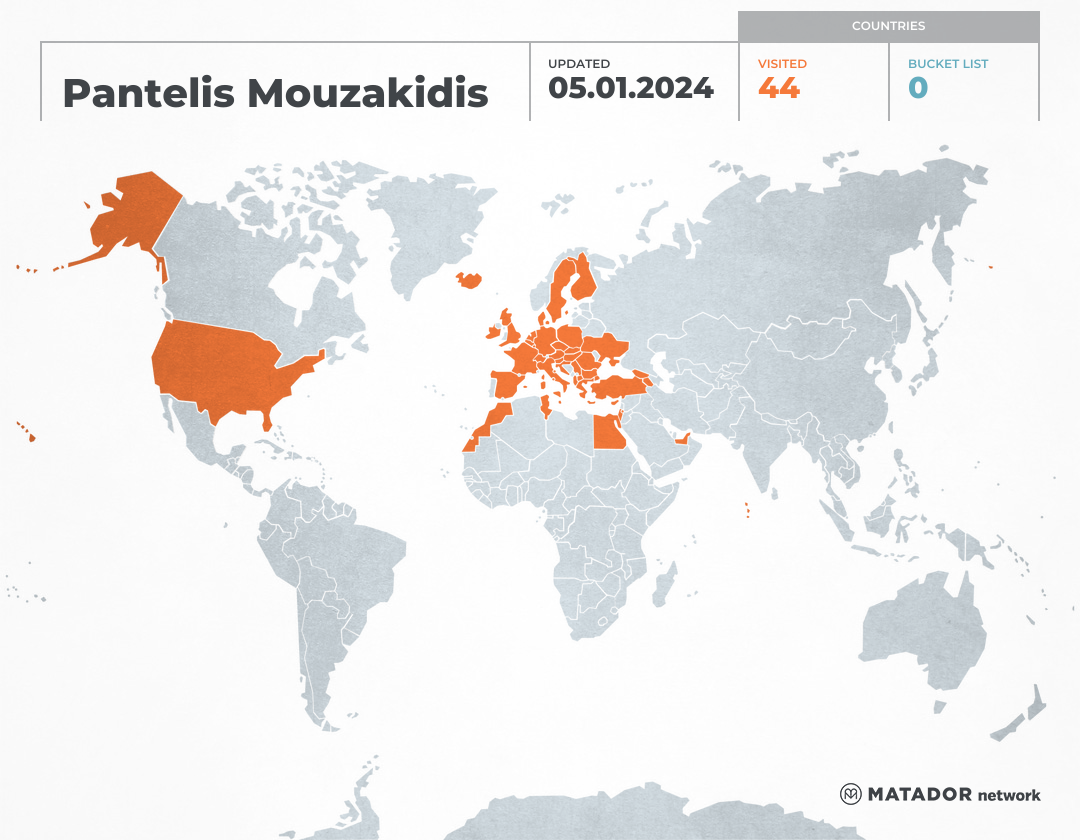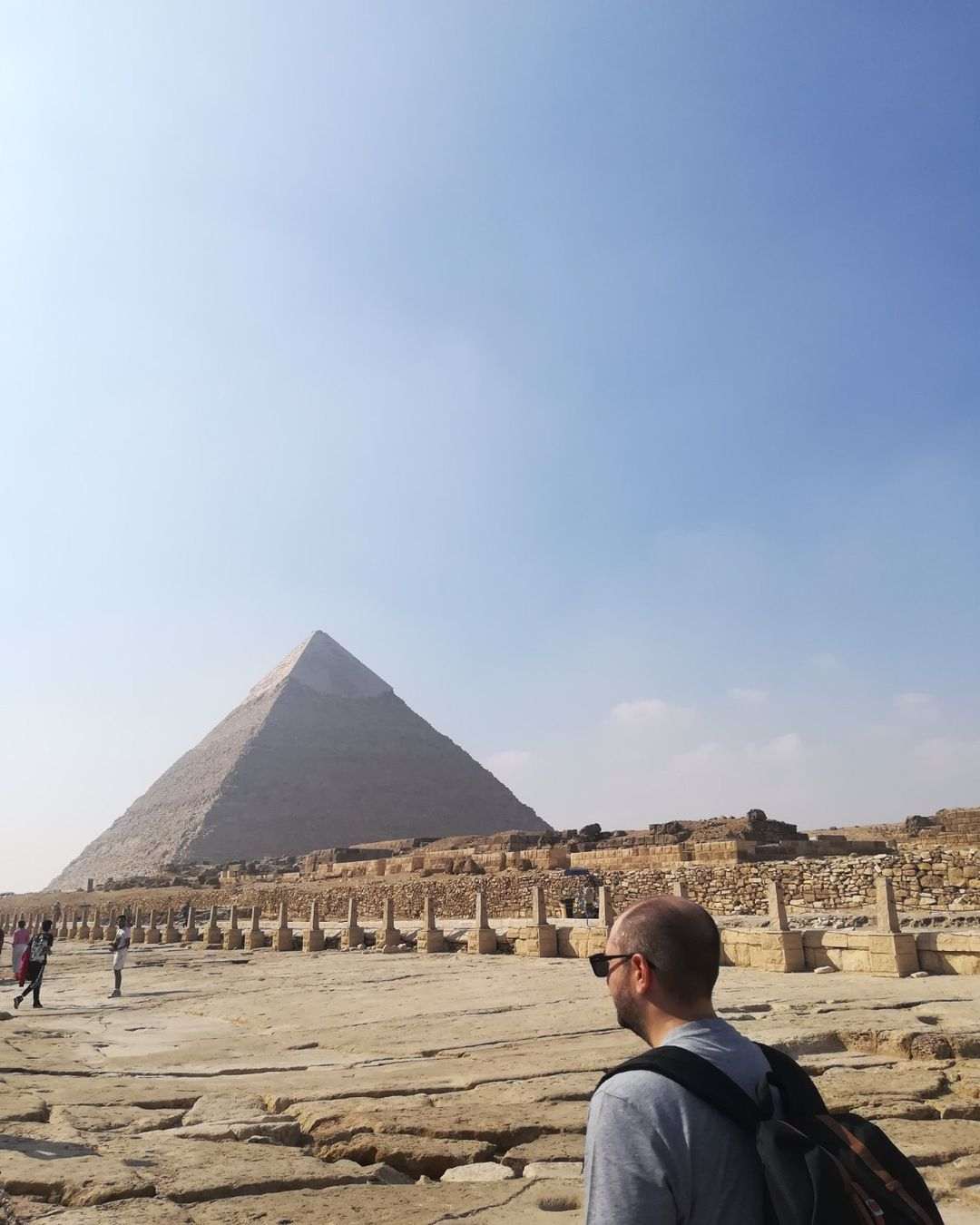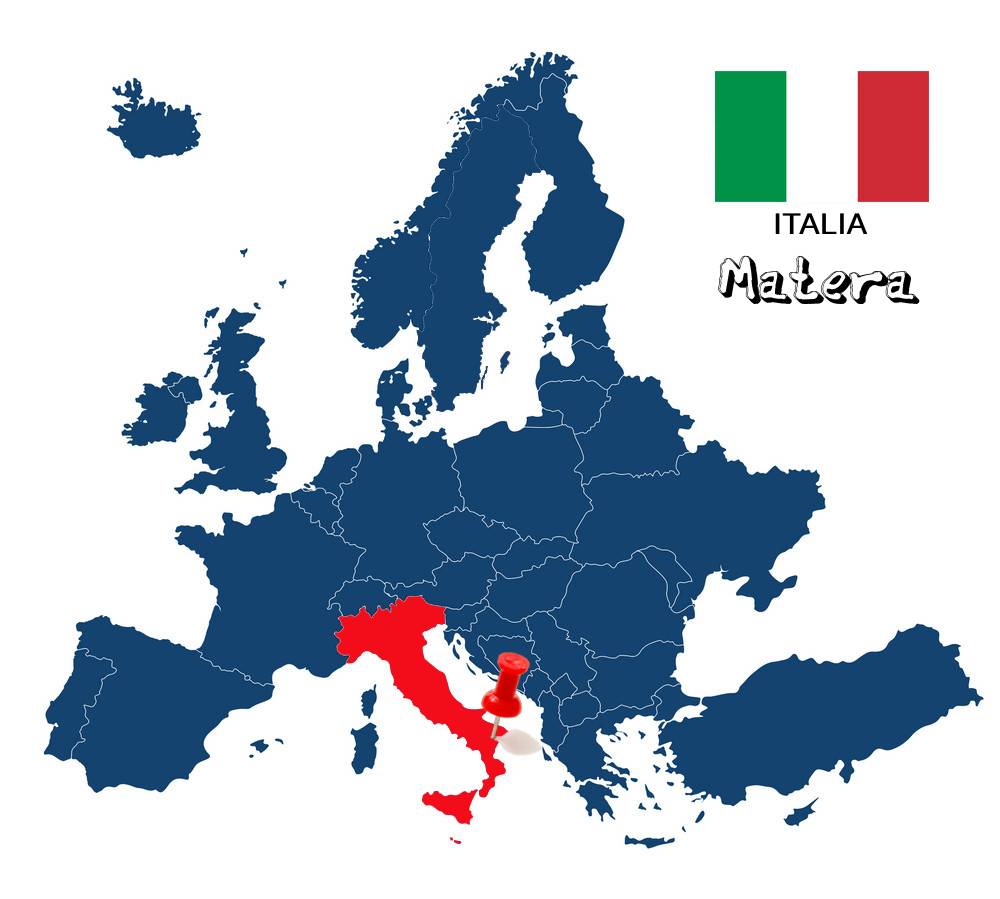
Matera is one of the most spectacular spots in southern Italy and one of those completely unique and beautiful places. So I guarantee that a visit there will leave you with your mouth open and will give you images that you have never seen before!
A few words about the city
Matera is located in southern Italy and more specifically in the region of Basilicata. It is the capital of the homonymous province and is built next to a narrow gorge, where the Gravina river flows. The area of Matera has been inhabited since the Paleolithic period and is considered one of the oldest cities in the world! In this city, the film "The Passion of the Christ" with Mel Gibson was shot in 2004 and the last James Bond film, “no time to Die” in 2021 with Daniel Gregg. Needless to say, Matera did not always enjoy its present glory. Until the 1950s it was considered a degraded place, where people lived in squalid conditions and for which Italians were ashamed. But all this changed in 1952 when the Italian government decided to transfer 15,000 residents to new homes and to give these cave houses to private individuals, so that they could be repaired and highlighted! So I chose for you, what I consider worthy of attention for someone visiting the city for the first time.
Sassi di Matera
Let's not hide behind our finger; Sassi di Matera is the main reason to visit this city! They are essentially spread over two districts, Sasso Caveoso and Sasso Barisano, which are known for the ancient stone caves inhabited since the prehistoric period, and many archaeologists argue that it may be where the first people settled in Italy. In fact, since 1993, this site has been designated by UNESCO as a World Heritage Site. The Sassi of Matera is one of the most photographed spots of the Italian south and certainly one of the most special in Europe!
Cattedrale di Matera
The Cathedral of Matera (Cattedrale di Matera) is a Roman Catholic Church dedicated to the Virgin Mary and Saint Eustace. The church began to be constructed in the 13th century and more specifically in 1203, at the highest point of the city and divides the two districts I mentioned above into two. It was originally designed to be dedicated only to the Virgin Mary, but finally Saint Eustace was chosen as a tribute to the church that existed at that point. Apart from the beauty of the building itself and its impressive bell tower, said to be the tallest in the area, from there you will admire perhaps the best view of the city. Admission is free.
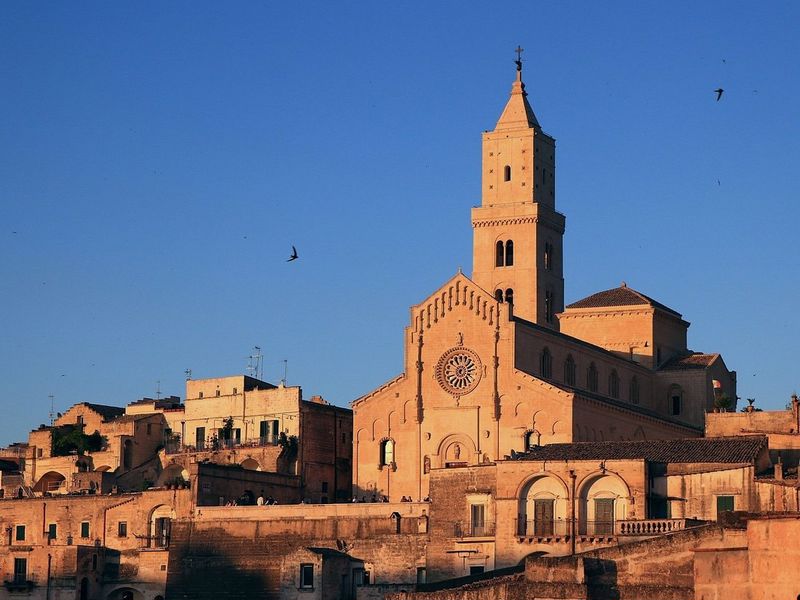
Churches
Apart from the Cathedral, there are other interesting churches in Matera that are worth visiting! Santa Maria di Idris or "Madonna de Idris", is a rocky church, that is, carved into the rock. It is located in the upper part of Monterrone, a massive limestone rock that rises in the middle of the Sasso Caveoso and is accessible via a staircase. The name Idris comes from the Greek word "Odigitria", meaning the one who points the way.
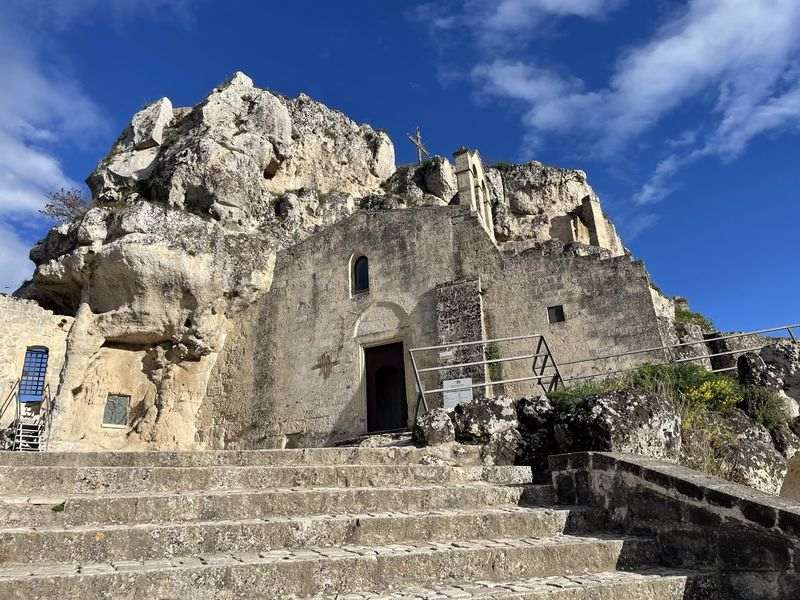
The second church I recommend visiting is the Church of John the Baptist (Chiesa di San Giovanni Battista). It is one of the most magnificent temples in the city, which dates between the 13th and 18th centuries and is considered a representative example of the Romanesque architecture of Apulia!
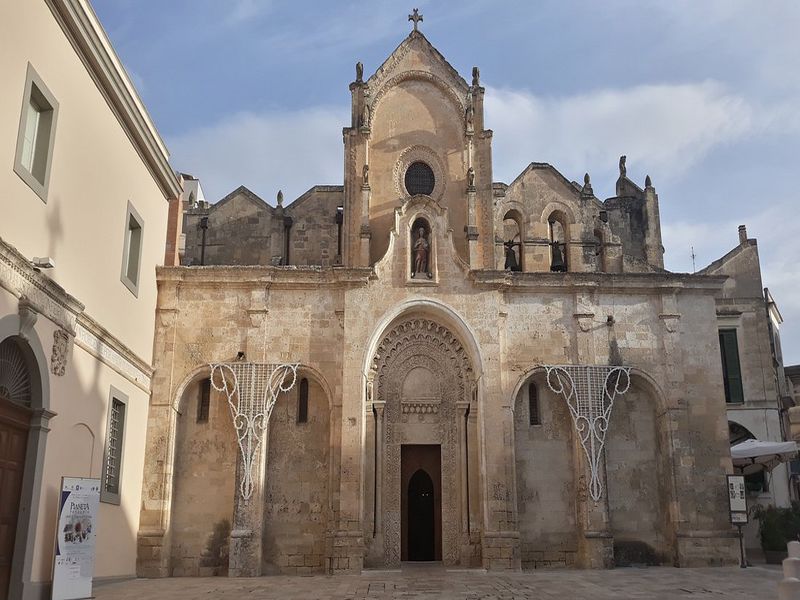
The Church of Saints Peter and Paul, commonly known as San Pietro Caveoso, is situated as you will have already perceived in the Sasso Caveoso quarter. This particular church was originally constructed in 1218, but underwent many changes and renovations over the centuries, and many of its original features were lost to time. The majestic and impressive building we see today comes from the 17th century, when the church was completely renovated and its current facade was built.
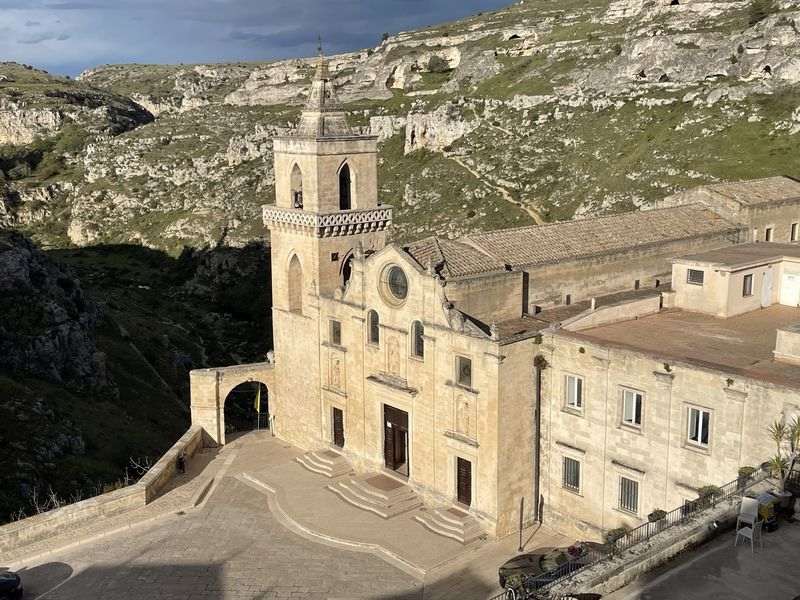
Ultimately, it is worth a visit to the Church of Purgatory (Chiesa del Purgatorio) with its Baroque architecture and its unique formation, as well as to the Chiesa di Santa Lucia alle Malve, where there are Byzantine frescoes in excellent condition.
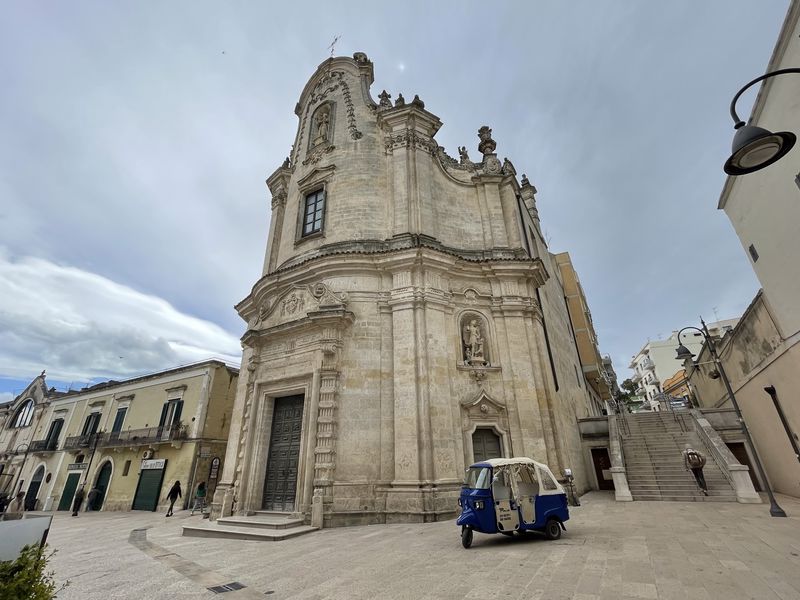
Casa Grotta - Casa Noha
To understand what a real rural residence was like before the "Sassi" of Matera was abandoned, I suggest visiting a typical traditional house inside a cave. The large house (Casa Grotta) is essentially a folklore museum, with furniture and tools of the time, which give visitors an accurate idea of how the inhabitants lived in that period. Admission costs 5e.
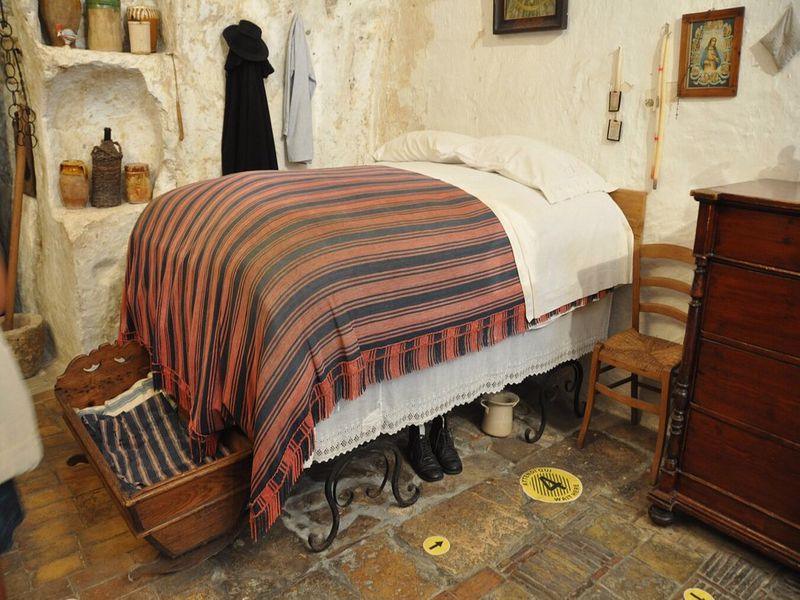
Plus, don't miss Casa Noha, which tells the Story of Matera from various angles. This renovated stone house was given by its heirs to the FAI, in order to share the history and beauty of the city with the general public. There you will watch a video titled "I Sassi invisibili. Viaggio straordinary nella storia di Matera" (The Invisible Sassi. An incredible journey through the history of Matera), designed by Giovanni Carrada and projected on the walls of the House. Admission costs 6e.
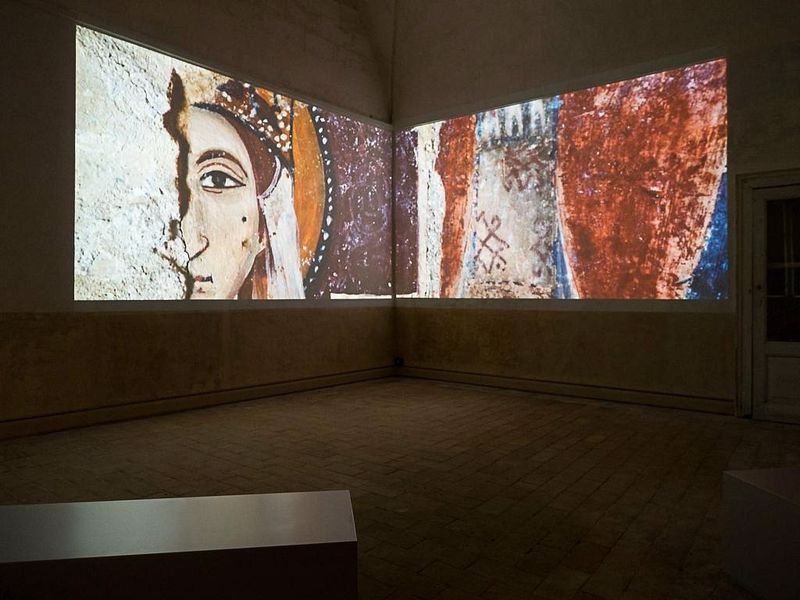
Museums
As for the museums, there are three that are worth visiting! The first is the National Museum of Matera (Museo Nazionale di Matera). It is a new museum (opened its gates in December 2019), born from the union of two earlier museum institutions and divided into three sections: art of the territory, Camillo d'errico collection, Contemporary Art with the works of Carlo Levi and Luigi Guerricchio. Admission costs 5e.
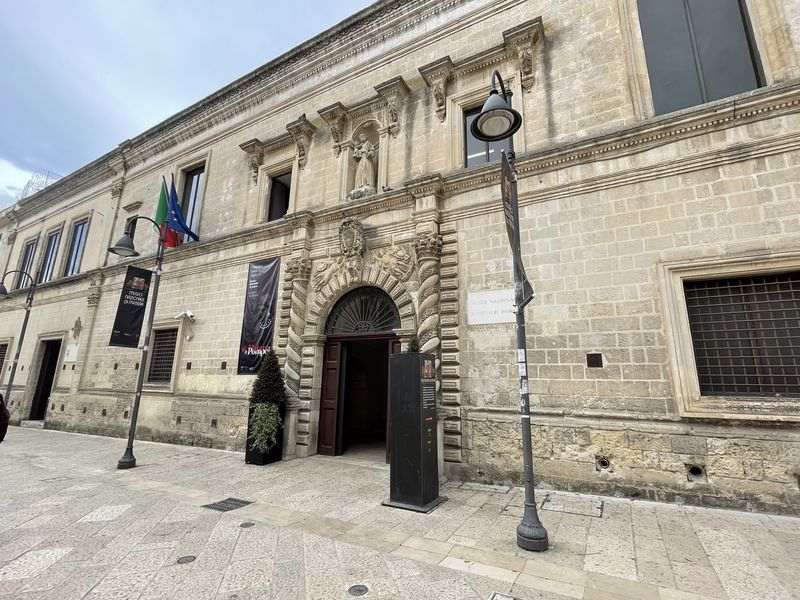
The second and most interesting in my opinion is the Museum of Contemporary Sculpture (MUSMA). This is the most important Italian museum dedicated exclusively to sculpture, hosted in the impressive Palazzo Pomarici of the 16th century! It is the only "Cave" Museum in the world, where you can live a unique experience among the impressive sculptures on display. Admission costs 7e.
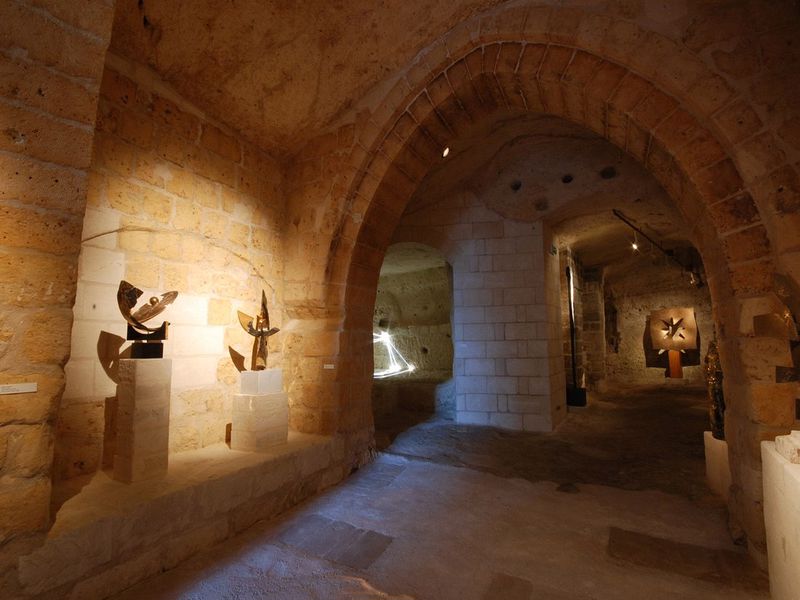
Finally, do not miss the immersive Museum of Bruna (Museo Immersivo della Bruna), which is located in the heart of Sasso Barisano. It contains a multimedia route as part of the patronymic celebration in honor of Maria SS. della Bruna, patroness of the city of Matera. This is a very ancient tradition, practically supernumerary, uniting the sacred and the profane, which was always alive and beating in the hearts of the citizens of Matera. The visitor is guided through legends, images, sounds and stories to discover the various aspects of this unique anniversary. Admission costs 6e.
Piazza Vittorio Veneto
The Vittorio Veneto Square (Piazza Vittorio Veneto) is the main square of Matera, located outside Sassi. On one side stands the impressive Palazzo dell'Annunziata, which was built in 1735 by the architect Vito Valentino for the Pontifical Commission of Rome, while today it is used as an exhibition space! On the other side we meet the Church of St. Dominic (Chiesa di San Domenico) and the building of the prefecture of Matera (Prefettura di Matera), while finally directly opposite you will see the Church Materdomini (Chiesa di Materdomini) and a window overlooking all the Sassi! In closing, in this square are scattered statues and monuments, some permanent and others occasional, which will impress you with their uniqueness!
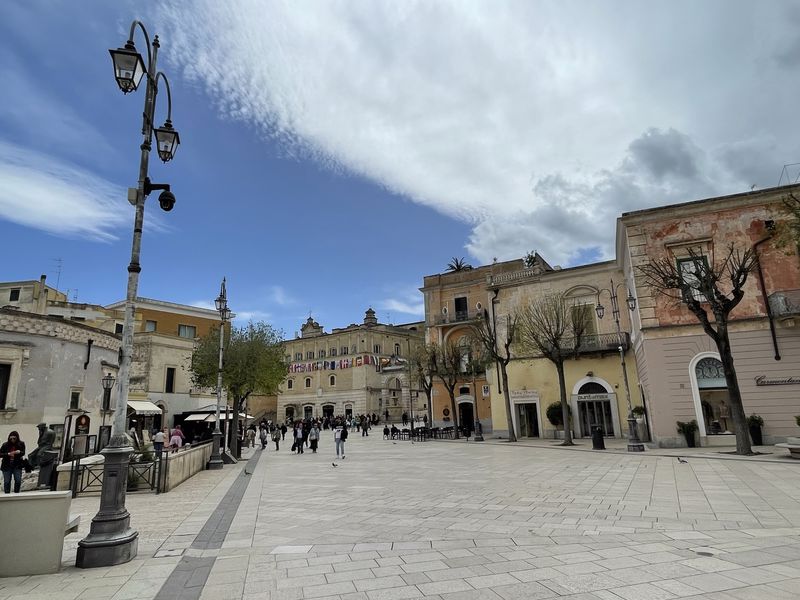
Parco Regionale della Murgia Materana
Last but not least, I left a place like no other in the world! I am referring, of course, to the Murgia Materana Regional Park (Parco Regionale della Murgia Materana), which was established by regional law on April 3, 1990. It is an inaccessible path full of churches carved into caves and rocks, one of which has frescoes of 8 century! Of course, there is no entrance fee, but if you choose to visit this park you must be fully prepared, cause it’s not an easy route!
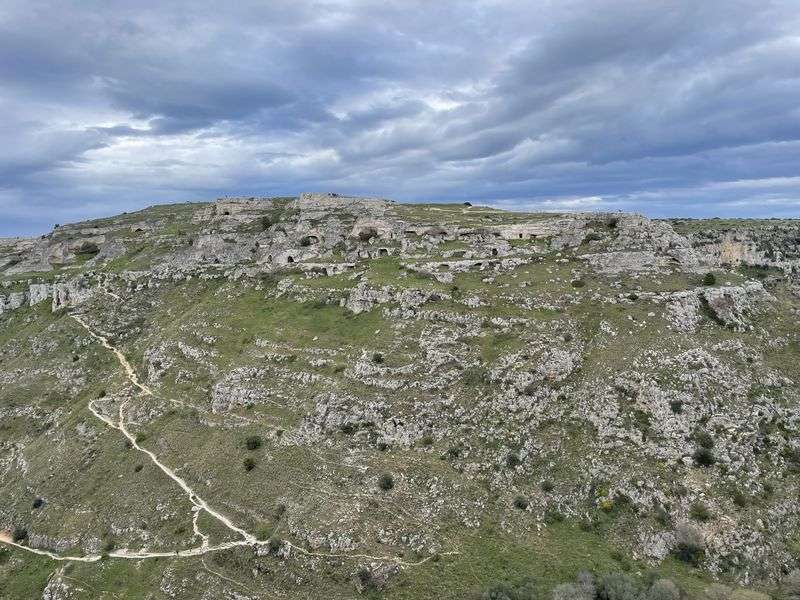
How to go
In Matera there is, of course, no airport so you have to travel first to a neighboring big city and from there end up in Matera. The most economical and quick option is via Bari. The most economical solution to travel to Bari from Thessaloniki, is offered by Ryanair, with a stopover in Bologna at 60€ round trip! You can also choose a direct flight from Athens with Volotea, from 62€ round trip! From there you will have to take a train to Matera, which costs 10.40€ round trip and you will be at your final destination in just under 1.5 hours.
Where to stay
Matera is a relatively small town, which in recent years has experienced huge tourist growth, something that is reflected in the prices of accommodation! Of course, the experience of staying in such a place is unique and highly recommended! The accommodation I have to recommend is the Antica Torre di iuso, located 100 meters from the Cathedral of the city and offering beautifully renovated rooms with terrace and garden views!
How to move
Although the whole magic of Matera is to wander and get lost in the labyrinthine alleys of Sassi, the city moreover has public transport, covering the whole urban area; these are mini buses, which stop at most of the sights of the town and you get tickets from the driver! You will also find regular taxis and makeshift taxis; reminiscent of the well-known Tuk Tuk, but I would not recommend them as both are relatively expensive!
What to eat
In addition to the classic pasta, pizzas and ice creams, going to Matera, you should try some of the dishes that are its trademark. One of them is Cialledd. This is a salad with local vegetables and bread of the farmer's wife! Matera is also famous for the traditional Crapiata soup, the orecchiette pasta, which looks like "ears", accompanied with red sauce and finally the traditional cookies le strazzate. Good options to try local flavors are La Lopa and Bollicine Bistrot. Finally, for coffee I recommend Sano 143, while for gelato Gelida Voglia di Artigianeria dei Sassi.
Useful information

In Italy we travel with a passport or a new type of Police ID, where the details are indicated in Latin characters.
In Matera the language used is, of course, Italian. But most, if not all, speak English, so ask for clarification in English.
The currency of the country is the euro.
Matera is an hour behind Greece (GMT +2).
In Matera there is no Greek embassy or any Greek consulate, so if you need anything you should contact the nearest one, located in Bari at Via Amendola 172/C and its phone is +39 080 5468049, 5461657.
The climate of Italy is quite similar to that of Greece, so there are mild winters and hot summers. The ideal time to visit is autumn or spring.
Recommended excursions → Bari, Alberobello, Monopoli, Polignano A Mare
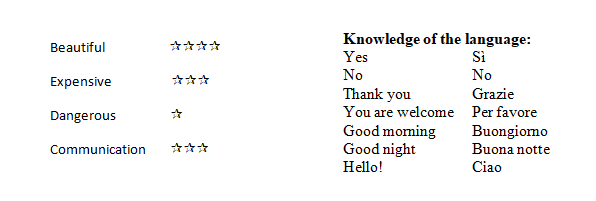
If this article seemed interesting or contributed to your quality information, then you can like my facebook page: o_thessalonikios or follow me on instagram!





